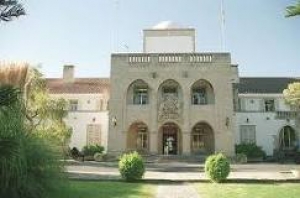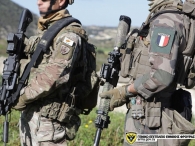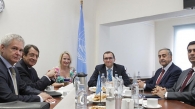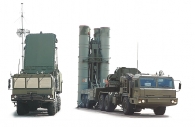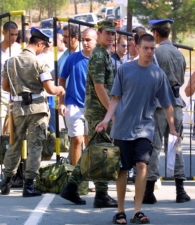ENGLISH TEXT AT THE END
Δημιουργίας Συμβουλίου Εθνικής Ασφάλειας και Σκοπιμότητες!
Του Δρoς Άριστου Αριστοτέλους
Η δημιουργία Συμβουλίου Εθνικής Ασφάλειας (ΣΕΑ) και οι σκοπιμότητες γύρω από αυτή την υπόθεση, που φαίνεται να απασχολούν ακόμη την κυπριακή κυβέρνηση, αποτέλεσαν το αντικείμενο δημόσιων αντεγκλήσεων και συζητήσεων. Σκοπός του παρόντος κειμένου είναι να θέσει σε σωστή διάστασή ορισμένα σημεία που έχουν εγερθεί.
Καταρχήν έχει λεχθεί ότι η κυβερνητική πλευρά μελετά τη σύσταση ενός τέτοιου ή παρόμοιου οργάνου και ότι κάποια άτομα, περιλαμβανομένου και τέως υπουργού της κυβέρνησης, που πιθανολογείται ότι θα είναι επικεφαλής του οργάνου αυτού, ασχολούνται με το όλο θέμα. Η εντύπωση ωστόσο που έχει δοθεί από τις ανακοινώσεις και εξηγήσεις είναι ότι δεν υπάρχει σαφής αντίληψη ως προς το πιο ακριβώς είναι το ζητούμενο από τη σύσταση, στελέχωση και το ρόλο της οντότητας αυτής.
Εάν η πρόθεση είναι πράγματι η δημιουργία ΣΕΑ, δεν χρειαζόταν όλη αυτή η ταλαιπωρία της εξ’ υπαρχής αναζήτησης πληροφοριών και μελέτης του θέματος. Θα ήταν αρκετό να μας συμβουλεύονταν ως Κέντρο Στρατηγικών Μελετών ή και να ανατρέξουν στα αρχεία του προεδρικού στις 11.01.1979 και 15. 04.1982 επί διακυβέρνησης Κυπριανού, στις 16.06. 1988 επί Βασιλείου και στο διάστημα 1993-2003 επί Κληρίδη όπως και στον ημερήσιο Τύπο της περιόδου αυτής και θα είχαν ολοκληρωμένες εκθέσεις και αναλυτικές προτάσεις μας για τη σημασία, τη σύσταση, οργάνωση και τρόπο λειτουργία της ΣΕΑ. Σημειώνεται συναφώς ότι επί διακυβέρνησης Κληρίδη πάρθηκε και σχετική απόφαση για σύσταση και λειτουργία ΣΕΑ αλλά δεν τελεσφόρησε.
Δεν είναι πρόθεση μας να υπεισέλθουμε σε εφ’ όλης της ύλης ανάλυση του θέματος, ωστόσο, κάποια σημεία που ηγέρθηκαν πρέπει επιγραμματικά να τεθούν στη σωστή τους βάση. Πρώτο, σκοπός του ΣΕΑ είναι να επιλαμβάνεται ζητημάτων – απειλές, κινδύνους κλπ - που επηρεάζουν την εθνική ασφάλεια της χώραςκαι να διαμορφώνει πολιτικές και να κινητοποιεί πόρους για την αντιμετώπιση των. Δεύτερο, αυτό προϋποθέτει σύσταση ομάδας ειδικών που θα μελετά, αναλύει, προβλέπει και υποβάλει εισηγήσεις στο ΣΕΑ κατά την εξέταση των θεμάτων αυτών. Τρίτο, της ομάδας αυτής προΐσταται άτομο με βαθειά γνώση του αντικειμένου, που θα ενεργεί και ως σύμβουλος του προέδρου της Δημοκρατίας επί θεμάτων εθνικής ασφάλειας. Τέταρτο, της ΣΕΑ προΐσταται και προεδρεύει ο πρόεδρος του κράτους και όχι ο σύμβουλος Εθνικής Ασφάλειας, όπως έχει λεχθεί. Πέμπτο, στις συνεδριάσεις της ΣΕΑ συμμετέχουν οι υπουργοί Εξωτερικών και Άμυνας, ο αρχηγός και υπαρχηγός της Εθνικής Φρουράς, καθώς και ο σύμβουλος Εθνικής Ασφάλειας και ο διοικητής της Κεντρικής Υπηρεσίας Πληροφοριών. Έκτο, ανάλογα με το θέμα παρακάθονται και άλλοι υπουργοί, π.χ., Οικονομικών, Δικαιοσύνης, Εσωτερικών κ.λπ. Έβδομο, ο ρόλος του συμβούλου Εθνικής Ασφάλειας, δεν υποκαθιστά τη συμβουλευτική ιδιότητα των υπουργών Εξωτερικών και Άμυνας στους τομείς δραστηριότητας τους, όμως αν δεν υπάρχει σαφής προσδιορισμός των καθηκόντων, ευθυνών και εξουσιών του, θα είναι αναπόφευκτη η μεταξύ τους σύγκρουση. Όγδοο, αν ο εν λόγω σύμβουλος και η ομάδα του δεν είναι καλοί γνώστες του αντικειμένου, τότε το ΣΕΑ θα κινδυνεύει να οδηγηθεί σε εσφαλμένες εκτιμήσεις και σε κινήσεις με αντίθετα από τα επιθυμητά αποτελέσματα.
Τέλος υπογραμμίζεται ότι η ασφάλεια και η επιβίωση του κράτους και των πολιτών από κινδύνους και απειλές, που προβάλλουν μέσα στο άναρχο διεθνές πολιτικό περιβάλλον και -αρκετές φορές - στο εσωτερικό, αποτελεί υψηλή προτεραιότητα οποιασδήποτε υπεύθυνης κυβέρνησης. Οι προκλήσεις κατά της Κύπρου δεν είναι σημερινό φαινόμενο – ένεκα υδρογονανθράκων – όπως έχει τονίσει η κυβέρνηση για να δικαιολογήσει την ενασχόληση με τη σύσταση ΣΕΑ, αλλά υφίστανται από τότε που υπάρχει κυπριακό κράτος, κυπριακό πρόβλημα και τουρκική απειλή. Η σύσταση λοιπόν και η λειτουργία ΣΕΑ στην Κύπρο, αν γίνει σωστά, θα μπορούσε – έστω και αργά - να συμβάλει θετικά στην προσπάθεια αντιμετώπισης των προκλήσεων και απειλών, αν όμως κάπου αλλού αποσκοπεί, τότε μόνο την εθνική ασφάλεια δεν εξυπηρετεί.
(10.06.2014)
ΚΥΠΡΙΑΚΟ ΚΕΝΤΡΟ ΣΤΡΑΤΗΓΙΚΩΝ ΜΕΛΕΤΩΝ
ENLISH TEXT
Establishing a Council of National Security in Cyprus
By Dr Aristos Aristotelous
The creation of the National Security Council (NSC) and the expediency surrounding this issue, which seems to occupy the Cypriot government, are still the subject of public debates and recriminations. The purpose of this article is to deal with some of the points raised during the debate and put them in perspective.
First, it has been said that the government is seriously considering the establishment of such or similar council and that a number of people, including former government minister, who is likely to be the head of this unit, are working on the whole issue. The impression, however, that is given so far is that there is no clear understanding or direction as to what is the aim of establishing, staffing and operating this entity.
However, if the intention of the authorities is indeed to create NSC, it did not need to undergo all this hassle in searching for information and studying this matter. It was enough to ask for our advice as a Cyprus Center for Strategic Studies. They could even delve into the government’s archives of 11.1.1979 and 15. 04.1982 during Kyprianou governance, or of 16.06. 1988 during Vassiliou presidency, and in the period 1993-2003 when Clerides was the President of the Republic. They could then realise that there are detailed and comprehensive reports and recommendations regarding the importance, composition, organization and mode of operation of the NSC. It may also be interesting to note that during Clerides governance the Cabinet decided to establish an NSC but failed to operate.
Although it is not our intention to enter into a comprehensive analysis of the subject matter as such, some points raised during the discussions must be put on their proper basis. First, the purpose of the NSC is to deal with issues like threats, risks, etc. that affect the national security of the country and to formulate policies and mobilize resources to address them. Second, it requires the setting up of a group of experts to study, analyze, forecast and submit recommendations to the NSC in examining these issues. Third, head of the group should be a person with sound knowledge of its subject matter, who will also act as an advisor to the President of the Republic on matters of national security. Fourth, the NSC is headed and chaired by the President of the state and not by his advisor on matters of National Security as some people recommend. Fifth, those participating in the meetings of the NSC are the Ministers for Foreign Affairs and Defense, the Chief and Deputy Chief of Staffs of the National Guard, the President’s Advisor on National Security and the Director of the Cyprus Central Intelligence Agency. Sixth, depending on the subject, at the meeting of the NSC, participate other Ministers, e.g., the Minister of Finance, the Minister of Justice, the Minister of Interior, e.t.c. Seventh, the role of the National Security Advisor is not a substitute of the consultative status of the Foreign Minister and the Minister of Defence about the immediate are of their interest and activity. However, if there is no clear definition of tasks, responsibilities and authorities, then conflict between them will be inevitable. Eighth, if the adviser and his team are not adequately equipped with knowledge and expertise on security matters, then the NSC will risk being led to misperceptions and moves that will have the opposite than the desired results.
Finally, it is underlined that the security and survival of the state and its citizens from threats, in the highly anarchic international political environment we live in, is a priority for any responsible government. Challenges against Cyprus are, of course, not a new phenomenon in order to justify the government’s preoccupation with the establishment of the NSC, but the state of Cyprus has been confronted with such threats since its creation and the breaking out of the Cyprus problem. Therefore, the establishment and proper operation of the NSC in Cyprus could make a positive contribution in dealing with the various threats and challenges facing the country, but if the aim of its creation is something different than that, then only the national security it cannot serve.

